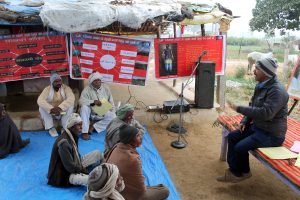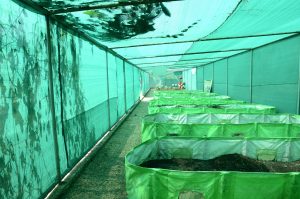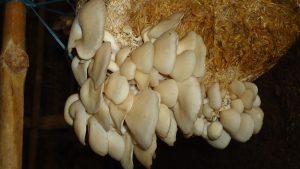
The Krishi Vigyan Kendra, Majhgawan was established in 1992 for Satna District of Madhya Pradesh to fulfill the long-felt need for strengthening the transfer of appropriate technology to farmers and farm women. Satna district forms a part of the Kymore Plateau and Satpura hills zone of Madhya Pradesh characterized by undulated topography. The Krishi Vigyan Kendra is situated 45 km. away from district headquarters. The total geographical area of the district is 7,42,432 ha, out of which 3,96,860 ha. is cultivable, 2,03,659 ha is under forest cover, and 39,533 ha is wasteland. The district has a total population of 14.65 lakhs, out of which 80.25% live in 2055 villages. The SC and ST population constitute 17.8 and 13.68% respectively. The district has 7 tehsils and 8 development blocks.

The National Planning Commission has identified Satna as one of the most backward districts of the country. Block Majhgawan, where the KVK is located, is a socially and economically backward region dominated by a tribal population (68.37%). District Satna is characterized by its backwardness, poverty, illiteracy, soil erosion and low productivity; along with other socio-economic and cultural constraints like “Anna Pratha” and uneconomical land holdings. There is a non-significant area under horticultural crop cultivation and livestock productivity is very low.
The district has peculiar climate and soil conditions that make it distinct in agriculture technology requirement. Former Zonal coordinator Dr. S.K.Das too admitted that the district has specific technology requirements in view of its undulating topography, poor soil fertility, and adverse climatic conditions. The center for the agriculture university which is responsible for agriculture research and manages most of the network of Krishi Vigyan Kendra’s in the state is located at Jabalpur. As such there is no technology source in the district and KVK has had to conduct adaptive research on new technology being generated in various ICAR regional stations and SAUs to test the suitability of the technology for the district before the technology is fed into the mainstream.

For achieving social, economical and agricultural progress, a strategy of sustained development is being implemented by the KVK. It is actively following an integrated management approach for crop husbandry, horticulture, animal husbandry, women empowerment, plant protection and allied fields through vocational training, demonstrations, kisan/mahila gosthi, kisan mela, field days for farmers, farm women, rural youth and grass-root level extension functionaries. The KVK is also giving more emphasis to frequent interactions between scientists & farmers; and the institution & villages for faster dissemination of technologies.
